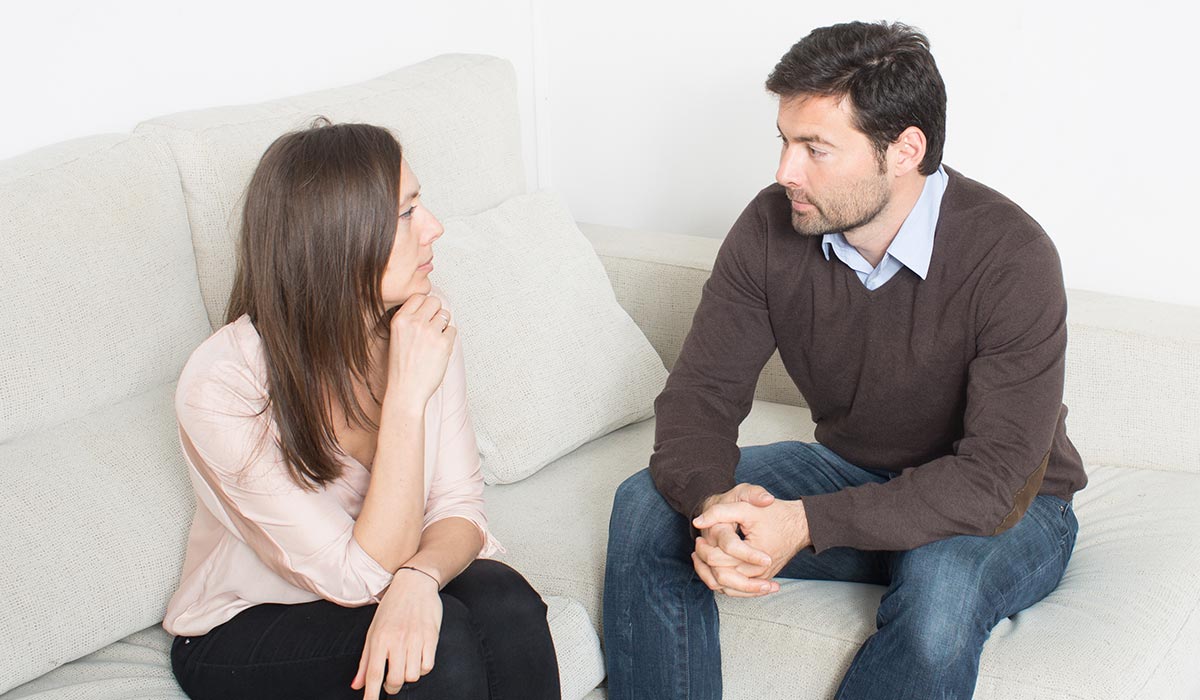Six ways to deal with family conflict
Published in Blog by Kate Thompson on January 4th 2021

To help raise awareness of the Sort It Out campaign, which aims to reduce the exposure of children to parental conflict, Kate Thompson, Head of Parenting Services at Tavistock Relationships, offers advice on dealing with family conflict.
People coming to couple therapy at Tavistock Relationships sometimes believe that healthy relationships mean no arguments, and they get increasingly worried if they’re experiencing them. All couples disagree; it is part of the process of resolving differences between two individuals in an intimate relationship.
However, research reveals that prolonged inter-parental conflict can have a damaging impact on the emotional and behavioural development of children.
This sustained conflict can lead to poor concentration, depression and anxiety. Worrying about the state of their parents’ relationship, and maybe fearing they are the cause of the unhappiness, is likely to lead to lower achievement at school.
Research reveals that prolonged inter-parental conflict can have a damaging impact on the emotional and behavioural development of children.
Aspects of unresolved conflict between parents can also haunt the forming of their own relationships.
An estimated 1.25 million children in Britain are exposed to intense and damaging inter-parental conflict. Difficult family relationships are consistently in the top three reasons why children contact ChildLine and are seen in mental health services.
The disruption and anxiety caused by the pandemic has left couples facing a new intensity, and there’s evidence that conflict in the home has risen.
At Tavistock Relationships, we work with couples, whether they are together or separated, to find ways to minimize destructive conflict, to benefit them and their children.
Here are six ideas for dealing with family conflict for couples to think about:
- Communicate clearly with each other
Misunderstandings about what a partner or ex-partner is thinking often sparks couple conflict. Couples frequently resort to high emotion or shutting down to send a message to their partner that they are hurt. It’s best to try to recognise stressors and avoid important conversations when you are exhausted or anxious. But it’s important to make time to ‘check in’ with each other. This can help maintain feelings of closeness and seeing the relationship as a resource for to the two people in it. And it allows couples to cope with difficulties in a more hopeful state of mind. - Talk to your child
Parents often believe they know what their children are thinking, and forget how much they held back from their own parents when they were growing up.
We need to try to work from a place of not knowing and be inquisitive about how our children are dealing with the trials and tribulations in their lives. This will allow them to feel central to their parents, building self-esteem and a secure sense of their own identity. - Maintain a secure parental presence
Open communication is even more important when parents are separated. Divorce can leave couples facing so many changes in their lives, it becomes harder to remember how difficult it is for their children. Overwhelmed with sadness at the end of their relationship, split parents can leave their children feeling divided in two themselves. Parents must try to put their own fears to one side, and empathise with their children, providing a secure parental presence. - Don’t speak ill of your co-parent
Children should be shielded from sustained inter-parental conflict, and not asked to side with one parent over the other. Sometimes children feel the urge to become a parent figure, thinking one parent needs to be protected from the other. This push forward in terms of their development, which places them in the centre of an adult dynamic they don’t completely understand, can leave them with long term feelings of blame and guilt. - The couple relationship is at the heart of the family
Children benefit if their parental relationship feels good. For a couple relationship to feel secure, the two individuals need to dedicate time for their relationship. For those who believe children should come first, this may feel counterintuitive but, in caring for itself, the relationship is safeguarding the whole family. - Asking for help can be a sign of strength
Whether you looking to get your relationship back on track, to split without too much acrimony, or to co-parent more effectively, professional help can help parents to manage difficult emotions and support their children.
The Sort It Out campaign seeks to make relationship support available and free to all parents in conflict.
Services to help:
You can book an appointment at our main service, whcih helps with relationships and also parenting, at a variety of fees, using our unque sliding scale here.
If you live in London or the northern Home Counties, you could benefit from our free relationship and parenting programme, find out more here.
For more information about Sort It Out, go to https://tavistockrelationships.ac.uk/policy-research/appg/1334-sort-it-out-campaign

by Kate Thompson
Joint Head of Couple Therapy for Depression, Projects and Business Development
Formerly Head of Strategic Development at TR, Kate is the Project Head for Couple Therapy for Depression Training of NHS practitioners.
Get in touch.

© 2023 Tavistock Relationships. All Rights Reserved.
10 New Street, London, UK, EC2M 4TP - Tel: 020 7380 1975
Registered Charity Number: 211058. Tavistock Institute of Medical Psychology.
Company number: 241618.

© 2023 Tavistock Relationships. All Rights Reserved.
10 New Street, London EC2M 4TP
Tel: 020 7380 1975
Registered Charity Number: 211058. Tavistock Institute of Medical Psychology. Company number: 241618.

